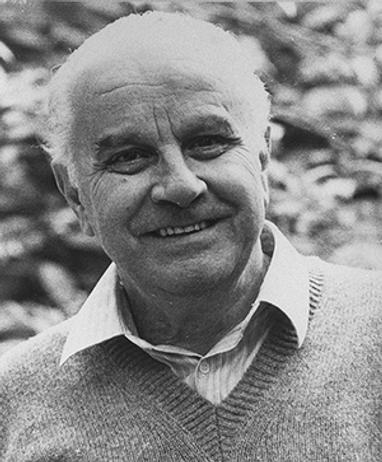In this article, I do an imaginary interview with another of my early childhood education heroes, Loris Malaguzzi, founder of the movement known as the Reggio Emilia Approach.
I know that you will find Signor Malaguzzi's answers helpful as you explore your options for preschool and kindergarten. In this interview, we delve into the essence of the Reggio Emilia approach, its underlying principles, and how it can nurture the development of your young ones. Let's gain valuable insights directly from the source and embark on a journey of exploration with Loris Malaguzzi.
Rob: What inspired you to develop the Reggio Emilia approach, and what are its core principles?
Loris Malaguzzi: The inspiration behind the Reggio Emilia approach stemmed from the dire need for a new educational model in the aftermath of World War II. Our primary aim was to create an environment where children could thrive, express themselves, and construct their knowledge. Our approach emphasizes the belief in the immense potential of children and their capability to shape their learning. Fundamental principles of the Reggio Emilia approach include:
a) Image of the child: We view children as strong, competent, and curious, with the right to actively participate in their education.
b) Emergent curriculum: Learning is driven by children's interests, questions, and discoveries. Teachers guide the exploration and investigations based on the children's inquiries.
c) Collaboration and community: We believe in the power of collaboration between children, teachers, and parents, fostering a sense of community and a shared responsibility for education.
d) Documentation: Documentation serves as a tool for reflection, communication, and assessment, capturing the learning journey of both the children and the educators.
This video offers an overview of the Reggio Emilia Approach.
Rob: How does the Reggio Emilia approach promote the holistic development of children?
Loris Malaguzzi: The Reggio Emilia approach recognizes that children possess multiple intelligences and learn through various modes. By fostering a rich and stimulating learning environment, we encourage children to explore and engage in activities that stimulate their cognitive, physical, emotional, and social development.
In our approach, children engage in open-ended experiences, hands-on projects, and creative expressions, allowing them to develop critical thinking skills, problem-solving abilities, and social-emotional competencies. They learn to communicate and collaborate with their peers, express their ideas through different mediums, and develop a sense of empathy and respect for others.
"The Reggio Emilia approach values the child as a competent learner and capable of constructing their own knowledge through meaningful experiences and interactions with their environment."
Rob: How does the Reggio Emilia approach value the role of the teacher in early childhood education?
Loris Malaguzzi: In the Reggio Emilia approach, the teacher is considered a co-learner and a collaborator rather than a traditional authority figure. Teachers observe and listen attentively to children, identifying their interests and strengths and supporting their inquiries and explorations.
Teachers facilitate and extend children's learning experiences, guiding them toward deeper understandings and challenging them to think critically. They provide the necessary resources, materials, and provocations to stimulate children's thinking and creativity while valuing and respecting their ideas and contributions.
This video offers another look at the Reggio Emilia Approach.
Rob: How does the Reggio Emilia approach involve parents in their child's early education?
Loris Malaguzzi: We strongly believe that parents are the primary educators of their children, and their involvement is vital to their child's education. The Reggio Emilia approach emphasizes a close partnership between parents and educators, fostering open lines of communication and mutual collaboration.
We encourage parents to actively participate in their child's learning journey, sharing insights about their child's interests, strengths, and development. Parents are invited to contribute to the curriculum, share their cultural backgrounds, and engage in various activities within the educational setting. This collaboration creates a sense of belonging and strengthens the connection between home and school, nurturing a holistic approach to a child's development.
Rob: How can parents support the Reggio Emilia approach at home?
Loris Malaguzzi: Parents play a vital role in extending the principles of the Reggio Emilia approach beyond the educational setting. Here are a few ways parents can support their child's learning at home:
a) Encourage exploration and curiosity: Provide a rich environment with open-ended materials, such as art supplies, blocks, and natural objects, to stimulate your child's creativity and problem-solving skills.
b) Foster meaningful conversations: Engage with your child by asking open-ended questions, listening attentively, and valuing their ideas and opinions.
c) Create a documentation corner: Designate a space to display your child's artwork, projects, and learning experiences. This promotes reflection and conversation about their achievements and discoveries.
d) Engage in nature experiences: Spend time outdoors, exploring nature, observing plants and animals, and encouraging your child to ask questions and connect with the world.
e) Embrace play: Recognize the importance of play in your child's development. Allow them ample time for unstructured play, independently and with peers, to foster creativity, imagination, and social skills.
Concluding Note
The Reggio Emilia approach, born from a vision for an inclusive and child-centered education, inspires parents and educators worldwide. By embracing the principles of respect, collaboration, and inquiry-based learning, parents can nurture their children's growth, curiosity, and love for learning, setting them on a path toward a bright and fulfilling future.
In my experience, a gentle child-centered approach to early childhood education can have many benefits. By valuing the child as an individual and focusing on their strengths and interests, educators can create a safe and supportive learning environment that fosters growth and development. This approach can also help children build self-confidence and independence, as they are given the space and resources to explore their own ideas and take ownership of their learning. Overall, a child-centered approach can be a wonderful way to support young learners and help them thrive in the classroom and beyond.
Questions? Contact us on Facebook @privateschoolreview
#ReggioEmilia #EarlyChildhoodEducation #HolisticDevelopment #ActiveLearning #Collaboration #ParentInvolvement






















